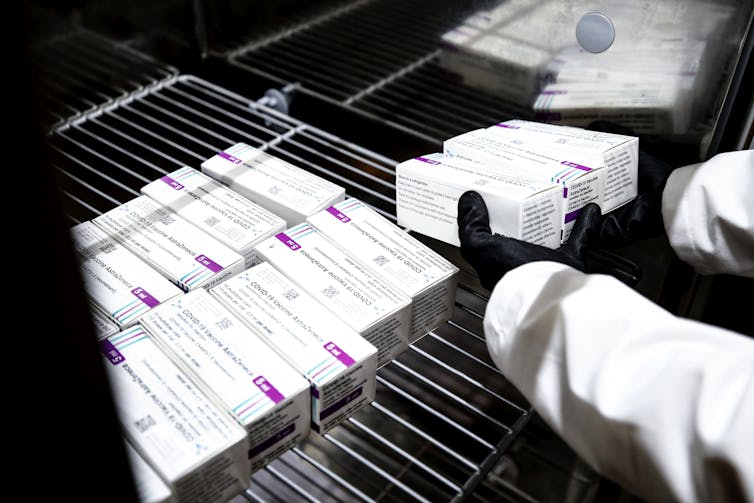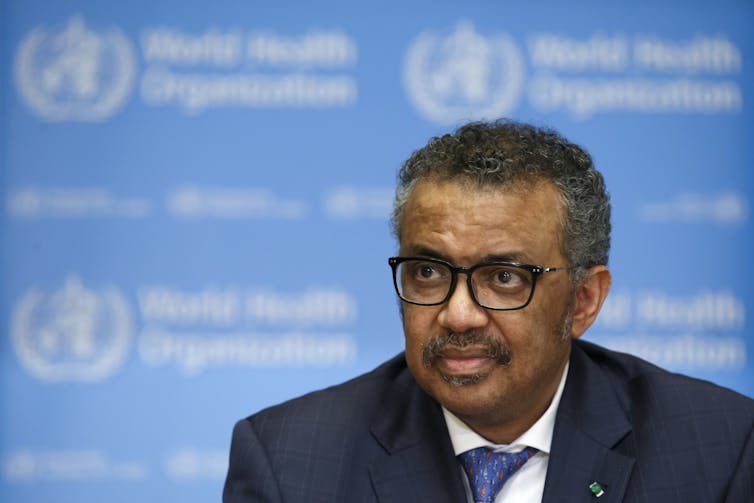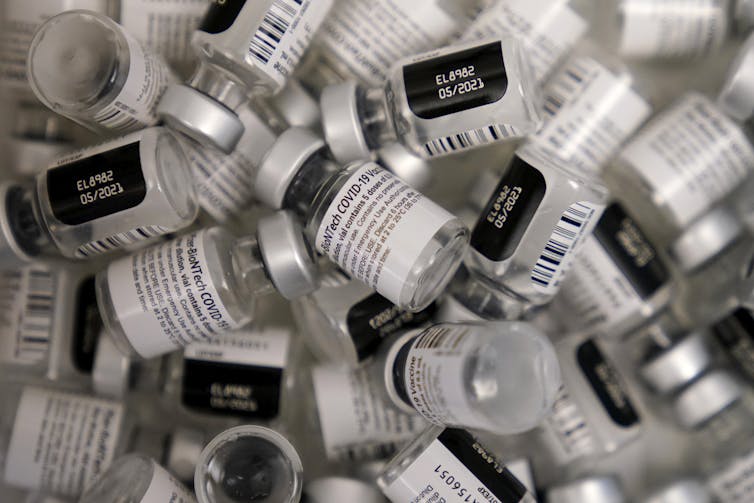Source: The Conversation (Au and NZ) – By Deborah Gleeson, Associate professor, La Trobe University
News of the blockage of a shipment of 250,000 COVID-19 vaccines from Europe to Australia has caused concern and outrage.
The immediate problem will probably be quickly solved through diplomatic channels. Even if it is not, onshore manufacturing of the AstraZeneca vaccine will soon make up for any shortfall in Australia’s vaccine supply.
But to avoid these types of supply shortfalls in future, it’s important to address the underlying problems behind this example of vaccine nationalism. Australia is both a victim of these problems, as well as a contributor.
Why has Australia’s shipment of vaccines been blocked?
Italy has blocked the shipment of AstraZeneca vaccines based on export authorisation rules introduced by the European Union in January. These rules require vaccine manufacturers in the EU to seek authorisation to export vaccines to some countries outside the bloc.
This is the first time this process has resulted in a planned delivery of vaccines being blocked. The EU could have objected to Italy’s action, but did not.The EU introduced the authorisation requirement due to concerns it was not receiving the quantities of the Pfizer and AstraZeneca vaccines that the companies had agreed to provide within certain time frames.

How much of a problem will the blockage be for Australia?
The immediate problem will probably be quickly solved through diplomatic negotiations. The EU is also likely to face intense criticism and pressure from other countries that fear the more widespread use of export restrictions.
So, it’s unlikely the export ban on these 250,000 vaccines will remain in place for long, or that Australia will face further export restrictions.
Even if the shipment never arrives in Australia, onshore manufacturing of the AstraZeneca vaccine by CSL will soon fill the gap, with the first locally produced doses expected to be available around the end of March. Any resulting delay in the rollout of Australia’s COVID-19 vaccination program is likely to be shortlived.
But the blockage of a vaccine shipment points to bigger problems that threaten to undermine the global distribution of vaccines and the world’s recovery from the pandemic.
The bigger picture of vaccine nationalism
The global distribution of COVID-19 vaccines has so far been extremely inequitable. By November 2020, governments had negotiated pre-purchase agreements for almost 7.5 billion doses, 51% of which had been reserved by wealthy countries representing only 14% of the global population.
In mid-January, the director-general of the World Health Organization warned of a “catastrophic moral failure”. He said that 39 million vaccine doses had been administered in high-income countries at that time, but just 25 doses had been provided in “one lowest-income country”.

At this rate, it could be 2023 or 2024 before vaccination brings the pandemic under control globally.
Studies by the RAND Corporation and the International Chamber of Commerce have found that hoarding of vaccines by wealthy countries could cost the global economy trillions of dollars.
Uncontrolled transmission of the virus in some parts of the world also raises the risk of more variants emerging that are resistant to existing vaccines.
Read more: Herd immunity is the end game for the pandemic, but the AstraZeneca vaccine won’t get us there
The underlying problem of artificial scarcity
Much of the reporting on vaccine nationalism tends to focus on the hoarding of vaccines by particular countries. But we should question why the supply of vaccines is so limited in the first place.
This comes down to privately held monopolies on the intellectual property and other types of knowledge, data and information needed for making vaccines. While there is manufacturing capacity available globally to ramp up vaccine production, the exclusive rights to make and sell the vaccines are held by a small number of companies. This is despite a huge investment of public funding in the development of many vaccines.

The intellectual property rights that impede rapid scaling-up of vaccine production are enshrined in the World Trade Organization’s Agreement on Trade-Related Aspects of Intellectual Property Rights (TRIPS). This agreement requires that WTO members make available 20-year patents for new pharmaceutical products, along with other types of intellectual property protection.
TRIPS includes safeguards like compulsory licensing, which governments can use to enable patented inventions to be produced without the consent of the patent owner in situations like a public health emergency.
But these are time-consuming and difficult to use, and they only apply to patents and not the other types of knowledge, data and information that are needed to manufacture vaccines.
Read more: 3 ways to vaccinate the world and make sure everyone benefits, rich and poor
Australia’s support needed for global solutions to vaccine scarcity
Two important mechanisms have been proposed to solve this problem of artificial vaccine scarcity and enable production of COVID-19 medical products to be rapidly scaled up. Neither has received Australia’s support to date.
India and South Africa put a proposal to the WTO in October 2020 that certain intellectual property rights in the TRIPS agreement be waived for COVID-19 medical products during the pandemic. This proposal, known as the “TRIPS waiver”, is supported by many developing countries, but opposed by the EU, US and other wealthy countries, including Australia.
The World Health Organization has also set up a mechanism for sharing intellectual property, knowledge and data for COVID-19 products, known as the COVID-19 Technology Access Pool (C-TAP).
C-TAP has been endorsed by 40 countries and many inter-governmental and civil society organisations, but lacks support from many high-income countries, including Australia. So far, it has been unused.
To address the real problems underlying the current supply blockage, Australia will need to reconsider its opposition to these proposed global solutions.
– ref. Yes, export bans on vaccines are a problem, but why is the supply of vaccines so limited in the first place? – https://theconversation.com/yes-export-bans-on-vaccines-are-a-problem-but-why-is-the-supply-of-vaccines-so-limited-in-the-first-place-156569







